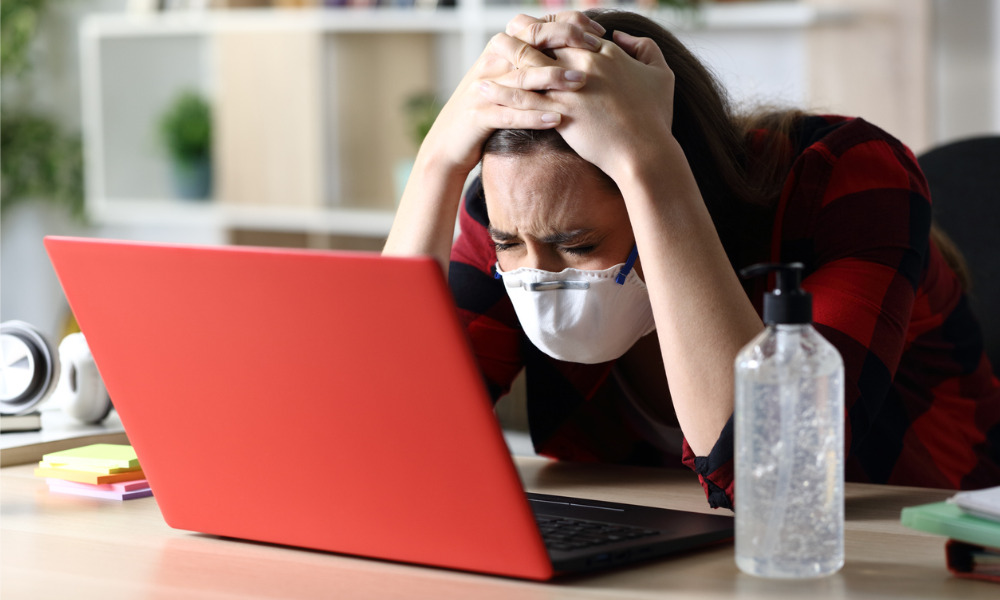Anxiety and Stress: Study Shows That COVID-19 Related Anxiety and Stress Cannot Be Beaten By Exercise
Source: Anxiety and Stress Sep 09, 2020 4 years, 7 months, 2 weeks, 3 days, 8 hours, 33 minutes ago
Anxiety and Stress: Researchers from Washington State University have found in a new study that exercise which typically helps by reducing anxiety and stress is unable to help with COVID-19 related mental issues.

Surprisingly in a study of twins led by the study team, individuals who reported increasing their physical activity after the start of COVID-19 stay-at-home orders reported higher levels of stress and anxiety than those whose activity levels stayed the same.
The study findings were published in the journal:
PLoS One https://journals.plos.org/plosone/article?id=10.1371/journal.pone.0237695
The study team analyzed data from over 900 pairs of identical and same-sex fraternal twins from the Washington State Twin Registry.
Participants who reported a decrease in physical activity within two-weeks after the start of stay-at-home orders had a perceived higher level of stress and anxiety, which was expected. But surprisingly, many of the respondents who increased their physical activity felt the same way.
Lead author Dr Glen Duncan, a professor in WSU’s Elson S. Floyd College of Medicine told Thailand Medical News, “Certainly, individuals who do not exercise know that there are associations with mental health outcomes, yet the ones that increased their exercise also reported increased anxiety and stress. It is hard to know exactly what’s going on, but it could be that they are trying to use exercise as a means to counter that stress and anxiety they’re feeling because of COVID.”
The study was conducted from March 26 to April 5, 2020, in the early days of the pandemic. Washington State and many other states issued their first stay at home orders near the end of March in an attempt to curb the spread of COVID-19.
Research participants were asked about changes in their physical activity compared to one month previous.
Interestingly, of the survey respondents, 42% reported decreasing levels of physical activity since the COVID crisis began, and 27% said they had increased their activities. Another 31% reported no change.
Significantly by conducting the research with twins allowed the researchers to look at whether the associations between changes in physical activity and mental health were mediated by genetic or shared environmental factors, or both. Identical twins share all of their genes; fraternal twins share approximately half of their genes; and twins raised in the same family share many formative experiences.
The study team found that the association between decreased physical activity and stress was confounded by genetic and environmental factors. The twin pairs who differed in their perceived change in physical activity when one twin reported decreased activity while the other remained the same did not differ in their perceived stress levels.
Dr Duncan added, “It is not necessarily that exercise won’t help you personally manage stress. It’s just that there is something genetically and environmentally linking the two.”
The study team also found some association betwee
n decreased physical activity and anxiety: within a pair of twins, the sibling with decreased physical activity had higher levels of anxiety than the sibling who reported no change.
Furthermore it was found that anxiety levels were higher among older people and women.
The study team led by Dr Duncan plan to survey this population again to see if the relationships between physical activity and these mental health issues persist or change.
.png)
Dr Duncan added, “At least in the short term, it seems there is not a lot of impact from either decreasing or increasing physical activity in terms of handling stress and anxiety, but that might be different after two or three months under COVID restrictions.”
The ongoing COVID-19 pandemic is giving rise to high levels of stress and anxiety along with many other mental issues and the longer the pandemic goes on, things are expected to get worse.
For more on
Anxiety and Stress, keep on logging to Thailand Medical News

.png)